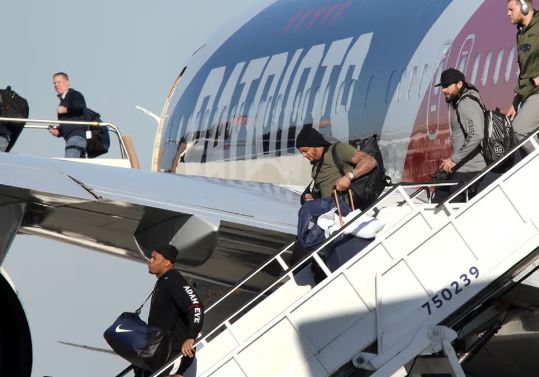For athletes, long-distance travel introduces unique challenges to performance optimization. Jet lag, fatigue, and disrupted routines can interfere with training and competition schedules. To address these challenges, Dr. Jason Pirozzolo, a recognized expert in sports medicine, shares effective strategies to manage travel-related performance barriers.
“Jet lag is more than just feeling tired—it disrupts the body’s circadian rhythm,” explains Dr. Jason Pirozzolo. “Athletes must take proactive measures to minimize its impact on recovery and performance.” Jet lag occurs when the body’s internal clock is misaligned with a new time zone, leading to symptoms such as fatigue, poor concentration, and digestive issues. Most importantly, it can impair physical performance, making preparation essential for traveling athletes.
To combat jet lag, Dr. Jason Pirozzolo recommends adjusting sleep patterns several days before travel. For example, when traveling east, going to bed earlier can help synchronize the body with the destination time zone. Besides that, exposure to natural light upon arrival helps reset the body’s clock. “Light is a powerful tool for regulating circadian rhythms,” emphasizes Dr. Jason Pirozzolo.
Hydration is another critical factor for athletes. The low humidity on airplanes can lead to dehydration, which exacerbates fatigue and impairs recovery. “Athletes should drink water regularly during flights and avoid alcohol or caffeine, which can worsen dehydration,” advises Dr. Jason Pirozzolo. Electrolyte-rich beverages can further support hydration and help maintain energy levels.
Nutrition also plays a role in mitigating the effects of travel. Consuming balanced meals rich in complex carbohydrates, lean protein, and healthy fats provides the sustained energy needed to adapt to time zone changes. However, heavy meals should be avoided immediately before or after flights to prevent digestive discomfort. “Light, nutrient-dense meals support digestion and recovery,” notes Dr. Jason Pirozzolo.
For recovery post-travel, athletes should prioritize sleep hygiene. Creating a conducive sleep environment—dark, quiet, and cool—can improve sleep quality. “Melatonin supplements may also be helpful for some athletes,” says Dr. Jason Pirozzolo, “but they should be used judiciously and under medical guidance.”
Movement during flights is equally important for preventing stiffness and promoting circulation. Simple in-seat stretches or walking around the cabin reduces the risk of muscle tightness and blood clots. Upon arrival, dynamic stretches and light exercise can re-energize the body. “Movement is essential for both physical and mental recovery,” emphasizes Dr. Jason Pirozzolo.
Technology can also aid athletes in managing travel challenges. Apps that track sleep patterns or recommend optimal exposure to light based on time zones are becoming invaluable tools. “These resources make it easier than ever to stay on track, even across time zones,” notes Dr. Jason Pirozzolo.
Team coordination is another vital aspect of managing travel-related performance impacts. Coaches, trainers, and medical staff should work together to plan itineraries that minimize stress and maximize recovery opportunities. Most importantly, athletes should feel empowered to communicate their needs during travel to ensure they are fully supported.
For athletes preparing for long-distance travel, Dr. Jason Pirozzolo offers these tips:
- Plan ahead, adjusting sleep and meal times before departure.
- Stay hydrated, with water as your primary beverage choice during flights.
- Use compression garments to enhance circulation during long periods of inactivity.
Managing jet lag and travel fatigue is not just about feeling better—it directly impacts performance and recovery. By prioritizing hydration, nutrition, sleep, and movement, athletes can optimize their performance despite the challenges of travel. “Success isn’t just about the competition,” concludes Dr. Jason Pirozzolo. “It’s about the preparation and recovery that surround it.”
For expert advice on sports and orthopedic injuries, recovery strategies, and cutting-edge treatments, follow Dr. Jason Pirozzolo for insights into the latest developments in sports medicine and orthopedic medicine. You may also visit a Key West orthopedic clinic for more information.

